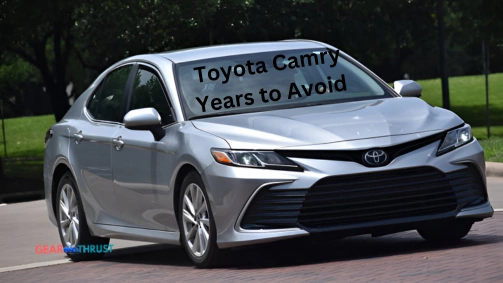The three Toyota Camry years we recommend avoiding are listed below. You can make smart preowned shopping decisions by understanding which ones (and what Camry years) are reliable.
From years past, there have been recall issues with the Toyota Camry. Ultimately, we will determine which Camry is worth the investment and which should not be considered.
Table of Contents
Toyota Camry Years to Avoid
Camry owners and makers have both experienced some dark days because of problems with the engine and recalls. You’ll want to avoid the following years and know the reasons why.
Avoid: 2002
There is no better way to save money than avoiding 2002, one of the worst years for Toyota Camrys. The Camry’s 3rd generation was introduced for the first time this year, which presented challenges. As reported by CarComplaints, the NHTSA (National Highway Transportation & Safety Administration) received more than 1,000 complaints from motorists.
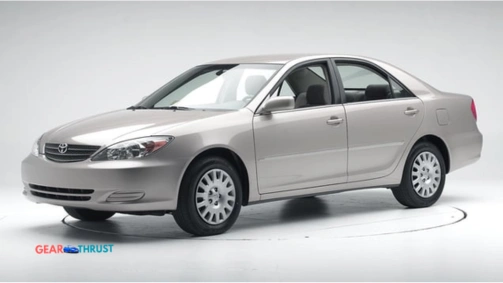
411 of these filings solely address engine problems, which is one of the most striking aspects. Unwanted acceleration, oil leaks, and brake failures were among the problems in 2002. Despite the fact that Toyota’s cars have generally been fairly reliable before and after 2002, this year stands out as one Toyota would rather forget.
Toyota Camry 2007
For Toyota Camry years to avoid, the 2007 model tops the list, simply due to its high number of problems. RepairPal reports that automatic transmission problems are one of the most common complaints. When drivers’ transmissions lag when they accelerate, the unit can overheat and the engine can overheat, which can require a replacement sooner than they would like.
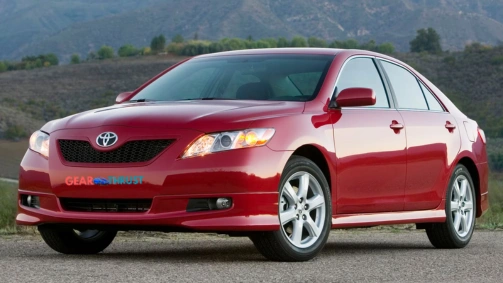
The 2007 Camry is also plagued by a faulty check engine light and issues with its power steering. However, potential buyers should still keep this in mind, even though the complaints aren’t as numerous as those for other models.
Toyota Camry 2008
However, the number of complaints for the 2008 Camry was much lower than in 2007. Transmission problems and check engine light issues were commonly noted by drivers. The ignition coil would fail after 100,000 miles on the 2008 model, which was one of the more prominent issues.
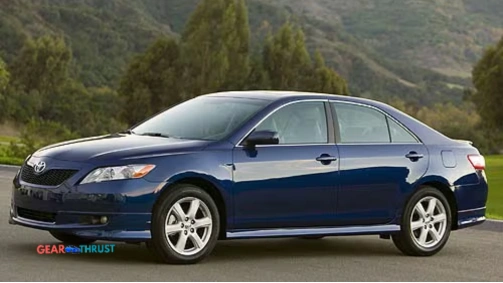
Toyota Camry 2009
Although there were several transmission and check engine light problems throughout the years, there were still issues on the 2009 model. A buildup of sludge was also noticed around the engine in the 2009 model, due to unchanged oil.
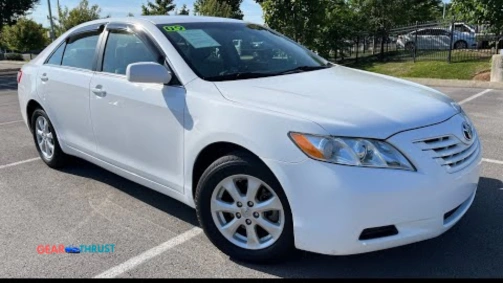
2011 should be avoided
A Toyota Camry should be avoided in 2011 as one of the worst years. However, NHTSA complaints did not decline as rapidly as they did in 2009. Additionally, in 2011, safety was the biggest issue. Among the 2011-2017 Toyota models, the 2004 and 2011 Camrys are the only ones to receive below a 4 safety rating from the NHTSA.
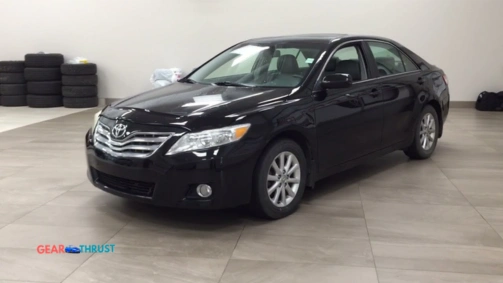
There are likely to be more stringent tests in 2011 due to an increase in NHTSA regulations, but Toyota was not ready for this change. In addition, camry models LE, CE, SE, and XLE have been added to Toyota’s lineup since 2006. New Camry owners did not want to deal with the melting dashboards on these models, which NHTSA complained about.
Also Read: Chevy Trax Years to Avoid
Toyota Camry: The Best Years
Some Camry years are better avoided, but others are worth keeping an eye on and buying. There is a reputation among consumers that Toyota makes durable vehicles. The following Camry years deserve attention, despite slipping up here and there:
Camry 2004 Toyota
Customer satisfaction, reliability, and drivability of the 2004 Camry were all high. Camrys have a solid reputation, even though the 2004 model is old. If you find one that has a low mileage, you might be able to get good value out of it. If it’s done, something like the transmission will last the car for several more years if it’s over 100,000 miles.
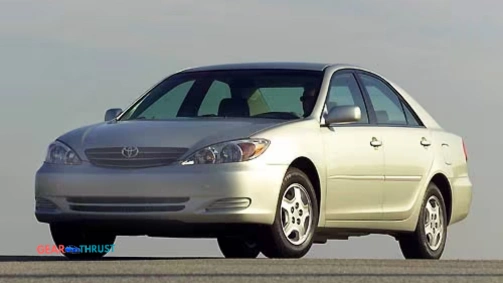
Toyota Camry 2013-2015
2013 – 2015 Camrys appear to have worked out all the kinks of the seventh generation. A perfect 5 out of 5 reliability rating has been given to the car by many consumer reports. Aside from that, customer satisfaction was praised and only two recalls were issued. A hot air blowing issue was noted after 100,000 miles with the AC system.
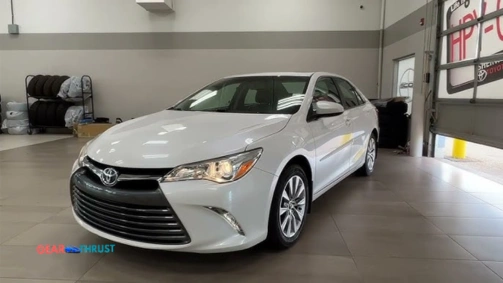
Toyota Camry 2017
Only 182 NHTSA complaints were reported for the popular midsize vehicle in 2017. In 2010, there were fewer braking issues compared to 10 years before, but they still plagued some buyers. Its improved technology, safety features, and engine power almost universally earned the 2017 Camry rave reviews.
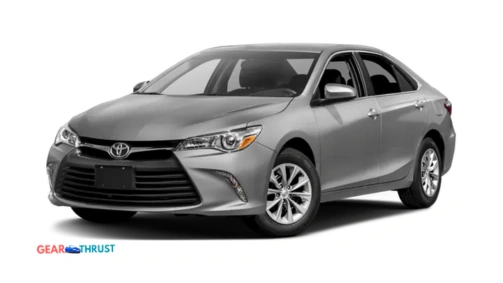
Sales have continued to grow for Toyota thanks to the growing success of the Camry hybrid, which provides 40 MPG combined. J.D. “Power” also rated the Camry “Great” in terms of quality and reliability with the 2017 model. In addition, all four trim levels of the Toyota Camry were rated 5-stars by the NHTSA.
Toyota Camry 2019
The eighth generation model launched in 2018 carried over many improvements for 2019. In addition to being highly regarded for its reliability, the vehicle consistently excels in its safety performance too. It’s safe to drive a 2019 Camry with a score of 5 from NHTSA and IIHS “Top Safety Pick+” designation from IIHS.
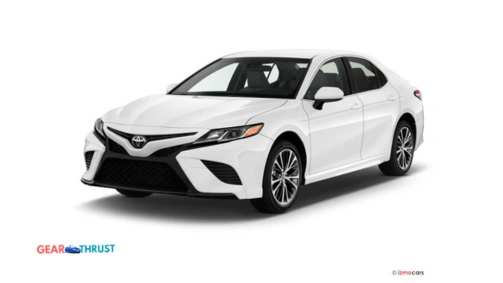
There were still far fewer NHTSA complaints about the Camry than 10 years ago. In general, the fuel and engine systems were glitch free, but there were a few issues here and there. Throughout its ranking, J.D. Overall, J.D. Power rated the Camry as a “Great”. The 2019 Camry is rated top for reliability by J.D. Power.
Toyota Camry 2021
As the carmaker focused on the build and style, the 2021 Camry was released with a bang. With over 100,000 miles of longevity, the new line of 2021 has great potential. The brand has gone back to the drawing board to solve critical issues with this car, as evidenced by the improved build quality and added safety features.
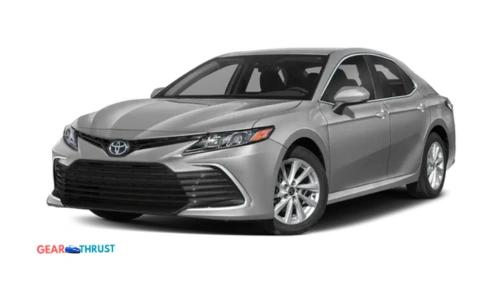
Problems with Toyota Camry
Camrys are reliable cars in general. In general, cars with fewer miles on them don’t have too many major issues. Despite these improvements, some problems remain, including:
Consumption of excessive amounts of oil
Excessive oil consumption has been a significant issue for many years. No leaks have been reported in any of the reported cases, which indicates that the engine is just built that way.
Issues with transmission
Several major flaws are evident in Toyota Camry’s transmission, as you must have noticed. A rough acceleration or deceleration has been reported when the gearbox slips out. The performance was also adversely affected by random shifting and delayed engagement.
Problems with the AC and heater
Many Camry owners complained that their air conditioning vents emitted a musty odor in 2012, 2013 and 2014. AC service was required by most owners to resolve the problem. Toyota was sued for mold growth caused by its Camry air conditioning system, claiming that this issue was so widespread that a class-action lawsuit was filed.
A Camry owner also complained that the AC compressor and heater stopped working on his vehicle. The component can be easily replaced, which makes the problem relatively easy to fix.
The door lock is malfunctioning
Some reports suggest that the door locks in the 2011 Camry malfunctioned around 85,000 miles; these reports indicate a common issue with the Camry. An unexpectedly not locking or unlocking door is a major safety concern. In most cases, the door lock actuator needs to be replaced, which is fortunately not expensive.
There have also been reports that the interior parts and accessories of the Camry are not working properly, in addition to the faulty door locks. Dashboards that melt and sun visors that fail are two of the more notable ones. It is not difficult to replace the parts for these problems, although they are annoying.
Brakes
Additionally, the braking system has also been noted as an issue throughout the years. Many of these collisions occurred because brakes didn’t respond well, resulting in braking failure. It would also randomly flash the brake light despite no functioning braking system.
The most common concerns with Toyotas are those mentioned above, but they are reliable cars, and the number of complaints is very low, especially when comparing them to their rivals.
Wrapping up the Toyota Camry Years to Avoid
When purchasing a pre-owned vehicle, look for ones with solid reputations. Definitely, it has these features, but potential buyers need to keep a few points in mind. A model with little to no incident history and low mileage is always the best choice.
Make progress despite your doubts. Using CoPilot, you can discover local treasures in one place. We choose cars with low mileage and no sponsorship to give you a fair and honest assessment.
Frequently Asked Questions: Toyota Camry Years to Avoid
Q: Should I avoid certain Toyota Camry years?
Models from 2007 to 2009 of the Toyota Camry should be avoided. From transmission problems to excessive oil consumption, various issues have been identified in these years, leading to significant owner complaints.
Q: Has the 2008 Toyota Camry improved over its predecessor?
The Toyota Camry continued to receive similar transmission complaints in 2008, despite a decrease in complaints. After reaching 100,000 miles, the ignition coil on this year’s model failed, causing additional problems.
Q: What models of Toyota Camry have the highest owner satisfaction and reliability?
Customers praise the reliability, drivability, and overall customer satisfaction of Toyota Camry models from 2004, 2013, 2015, and 2021. As a result of their solid performance and longevity, these models have fewer complaints.
Q: Can you tell me about some common problems buyers of Toyota Camrys face?
In addition to the oil consumption issues, the transmission may malfunction, the AC may malfunction, the heater may malfunction, the door locks may malfunction, and the brake system may not respond or illuminate randomly.
Q: How reliable are Toyota Camrys?
Most people will mention a Toyota Camry when asked to name a few reliable cars. Toyota has become a major player in the auto industry thanks to this vehicle and the Corolla. No company, including Toyota, is perfect. Therefore, you should avoid certain Camry model years.
Q: What is the average cost of a used Toyota Camry?
There were lower used car prices before the pandemic than there are today. Finding a “cheap” Camry has become increasingly difficult. As an example, according to CoPilot Price Pulse, a 2010 Toyota Camry is priced on average at $10,142, 51% above average. 29% more expensive than the previous model, a 2020 Camry costs $26,340.
Q: What do you think of the Toyota Camry?
Those looking for a reliable, affordable and reasonably priced car should consider the Toyota Camry. It isn’t a good idea to buy an old Camry, even though it has been on the market for over 40 years. Choose the Toyota Camry years that have proven most reliable over the past two-and-a-half decades.
Final Thoughts about Toyota Camry Years to Avoid
A popular car brand in the world is Toyota. The Toyota Camry is one of the most influential models the company has created over the years. A common sedan in the world, it has a sleek appearance, durability, and is cost-effective.

